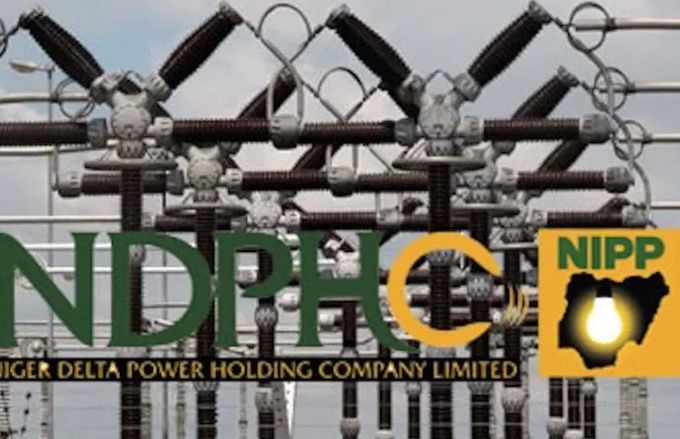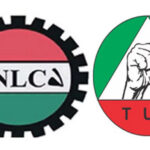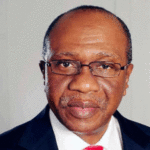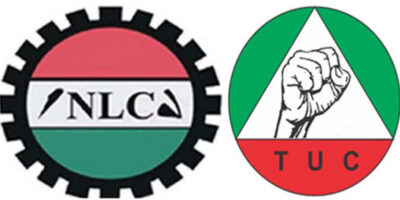NDPHC To Restore 800mw To Power Grid To Boost Supply

- TCN: System collapse dropped available capacity to 3500mw as of Monday
- All electricity consumers to be metered in three years, says NERC
Niger Delta Power Holding Company (NDPHC) has said it was targeting to re-inject about 800 megawatts (mw) of electricity into the national power grid in the coming months as part of the ongoing joint efforts of all industry stakeholders to restore supply to the grid and to Nigerians.
The Managing Director of NDPHC, Mr. Chiedu Ugbo, disclosed this yesterday in Lagos, during an interactive session with industry stakeholders and the media which was led by the Nigerian Electricity Regulatory Commission (NERC).
Also at the meeting, the Transmission Company of Nigeria (TCN) said the current available capacity in the national as of 5am on Monday was 3500mw just as NERC assured that with eight million meters being expected for deployment under the National Mass Metering Programme (NMMP), all electricity consumers would be metered in the next three years.
Providing situation report on the power plants, Ugbo assured at the meeting that the 450mw Calabar Independent Power plant which had been out of operation due to maintenance would resume generation of power by midnight yesterday.
He said the company lost closed to 800mw between Calabar and Alaoji power plants due to gas challenge, adding that the outage from the two power plants added to the overall outage in the country.
He said while the Calabar plant was shut down due to the ongoing routine maintenance on the gas pipeline by the gas supplier, the Alaoji was shut down as a result of the force majeure declard by TotalEnergies on its gas supply pipeline after an attack on it by vandals.
Ugbo explained that the 800mw targeted to be re-injected into the grid would be realised when Calabar and Alaoji come back coupled with the 600mw worth of gas contract it had signed with the Nigerian Gas Marketing Company (NGMC) with the approval of emergency gas pricing by NERC.
Our major challenge is gas. But thankfully, with the intervention of the federal government and of course the regulatory commission, we are now able to contract for at least 600mw worth of gas for those power stations for a long period. We have negotiated all the agreements with the Nigerian Gas Marketing Company (NGMC), which is a subsidiary of the NNPC.
We have now obtained the approval of the commission as to the gas price and then we go ahead to close the agreement and begin to get gas from the NGMC. So, when we have Calabar back today and with another 600mw from the West, we should have from NDPHC alone over 800mw.
We will expect that to increase significantly when TotalEnergies lifts the force majeure that it invoked and then supply us gas for another 337mw from Alaoji. We expect that in no distant time.
Geregu Power Plant is on routine maintenance outage. We expect that again with 435mw back this April. But just to add to what the chairman has said that a lot of work is ongoing and very soon, we’re going to be back to normal and even better.
Managing Director, TCN, Mr. Sule Abdulaziz, said the recent collapse of the grid had brought the available capacity of the national grid to about 3500mw as of 5am yesterday from the previous 5800mw.
Abdulaziz apologised to Nigerians for the difficulties caused by the system collapse, saying it was not deliberate.
First of all, let me start by apologizing to Nigerians for what we have gone through in the past one week or 10 days. This is not deliberate. It was just something that came and there was nothing we can do.
But if we can all remember, last year, by this time, we were only getting peak of 5,700; 5,800; but due to some issues which the chairman has already mentioned, we are now around 3500mw.
And unfortunately, last Monday and Tuesday, we had system collapse. Somebody was asking when do we get out of this problem. If you are talking of system collapse, as soon as the system came back, we are out of that problem.
The TCN boss said the grid collapse had been dropping since 2018 with 12 collapse recorded in 2018, nine in 2020, four in 2021 and three this year.
However, the analysis of the numbers showed that the national grid has collapsed 30 times since 2018 till date.
The Chairman of NERC, Mr. Sanusi Garba, who led discussion at the meeting, assured that with eight million meters being expected for deployment under the National Mass Metering Programme (NMMP), all electricity consumers would be metered in the next three years.
He said Nigeria has about eight million metering gap and that four million would be provided during phase one of the NMMP while additional four million would be procured with financing from the World Bank.
Garba stated that procurement for the first four million meters had started and that the deployment would commence soon.
He said,
Today, the metering gap is about 8 million meters and under Phase 1 of NMMP, we are doing about 4 million meters. But there is another financing window for additional meters -the World Bank. They will bring in financing to procure additional four million meters. Now, one of the questions is when will the metering gap be closed.
So, today, if you have a metering gap of eight million meters and then you have new connections, obviously, you can be standing in the same position. Or a lot of the meters probably, 100,000 or half a million meters are obsolete and need to be replaced.
So, there is no point when you can say I don’t need any more meters, everybody has been metered because you always have new connections, you also have meter replacements as the industry goes. So, with 8 million meters coming over the next three years, we believe substantially, almost all consumers will be metered. But three years is a plan.
Garba, who also gave some updates on the Nigeria-Siemens power project otherwise known as the Presidential Power Initiative (PPI), said the project was on course.
He explained that the set of projects identified by the distribution companies (Discos) and the TCN had been presented to NERC and that the commission had granted approvals as required from it for the project to proceed.
According to him,
all capital investments to the networks require regulatory approval because at the end of the day it’s going to your tariff.
So, that has been done. Siemens also have submitted the first set of quotations for the projects. I also understand that Siemens has identified EPC contractors that will actually do the installations of the OEM equipment in Nigeria. But it’s going on, it may not be on track but it’s still happening.

Justin Nwosu is the founder and publisher of Flavision. His core interest is in writing unbiased news about Nigeria in particular and Africa in general. He’s a strong adherent of investigative journalism, with a bent on exposing corruption, abuse of power and societal ills.












